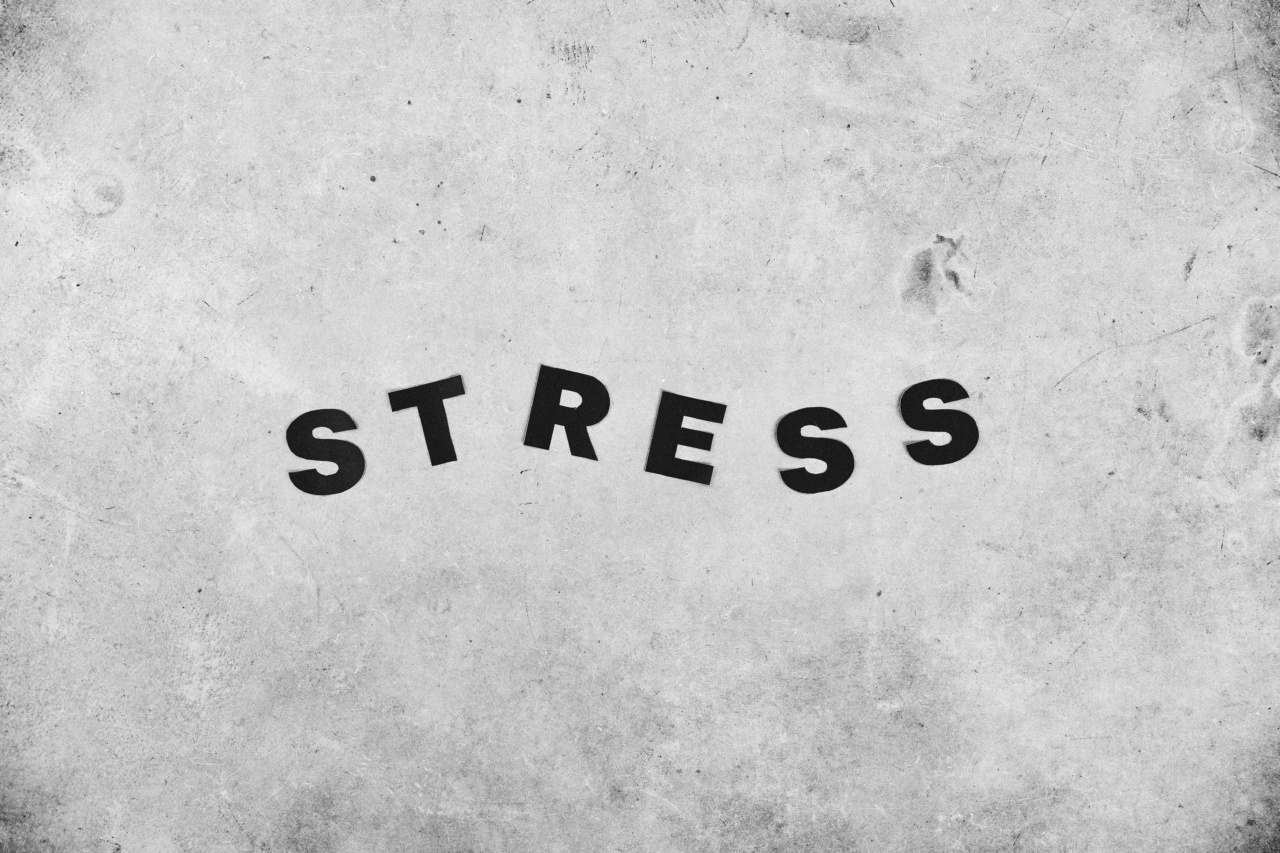Stress is a common problem that many people face, and it can be caused by a variety of factors, such as work pressure, family issues, financial problems, and health concerns.
If left unmanaged, stress can have negative effects on your physical and mental health. Fortunately, there are many simple methods that you can use to reduce stress, and here are ten of them:.
1. Exercise
Regular exercise has been found to be an effective way to reduce stress. When you engage in physical activity, your body releases endorphins, which are natural mood boosters that can help you feel better and reduce stress.
Exercise can also help you sleep better, which can further reduce stress. Aim for at least 30 minutes of exercise a day, whether it’s a brisk walk, a yoga class, or a swim.
2. Deep Breathing
Deep breathing is a simple yet effective way to calm your mind and reduce stress. By taking slow, deep breaths and focusing on your breath, you can lower your heart rate and blood pressure, and feel more relaxed.
To practice deep breathing, sit in a quiet place and inhale deeply through your nose, filling your lungs with air. Then exhale slowly through your mouth, letting all the air out. Repeat this for 5-10 minutes.
3. Meditation
Meditation is another powerful technique for reducing stress and achieving a calm state of mind. It involves focusing your attention on a particular object or sound, such as your breath or a mantra, and letting go of distracting thoughts.
Regular meditation practice can help you develop greater mental clarity and emotional resilience, making it easier to handle stress. Try meditating for 10-20 minutes a day, either alone or with a guided meditation app.
4. Sleep
A good night’s sleep is essential for managing stress. Lack of sleep can make it harder for you to focus, cope with challenges, and regulate your emotions.
To ensure you get a good night’s sleep, aim to go to bed at the same time each night, avoid caffeine and alcohol before bedtime, and create a relaxing sleep environment. If you have trouble sleeping, try relaxation techniques such as deep breathing or listening to calming music before bed.
5. Time Management
One of the main causes of stress is feeling overwhelmed by the demands of daily life. By managing your time effectively, you can prioritize tasks, reduce the risk of procrastination, and give yourself more time for relaxation and leisure activities.
Start by making a to-do list each day, and breaking down large tasks into smaller, more manageable ones. Learn to say no to tasks that don’t align with your priorities or values, and delegate tasks when possible.
6. Social Support
Having a strong social support network can help you manage stress. Spending time with loved ones, sharing your thoughts and feelings, and receiving emotional support can all help reduce stress levels.
Make time to connect with friends and family, join a social group or club, or consider seeing a therapist for additional support.
7. Creative Activities
Engaging in creative activities, such as painting, writing, or playing music, can be a powerful way to reduce stress. These activities can help you relax, express your emotions, and stimulate your brain in new ways.
Find a creative activity that you enjoy and make time for it regularly.
8. Nature
Nature has been found to have a calming effect on the mind and body. Spending time outdoors, whether it’s a walk in the park or a hike in the mountains, can help you reduce stress and boost your mood.
If you live in a city, try to find green spaces or parks where you can connect with nature.
9. Mindful Eating
The food you eat can also have an impact on your stress levels. Eating a healthy, balanced diet can help you stay energized and reduce feelings of stress and anxiety.
Take time to enjoy your food, savor the flavors, and eat mindfully, without distractions. Avoid overeating or emotional eating, which can lead to feelings of guilt or stress.
10. Gratitude Practice
Finally, practicing gratitude can be a powerful way to reduce stress and cultivate a more positive outlook on life.
Focusing on the things that you are grateful for, rather than the things that are causing stress, can help shift your perspective and reduce negative emotions. Make a habit of writing down 3-5 things you are grateful for each day, or simply take a moment to reflect on the good things in your life.
Conclusion
Reducing stress is an important part of maintaining good physical and mental health. By incorporating these simple methods into your daily routine, you can lower your stress levels and improve your overall wellbeing.
So go ahead and try some of these techniques today!.






























